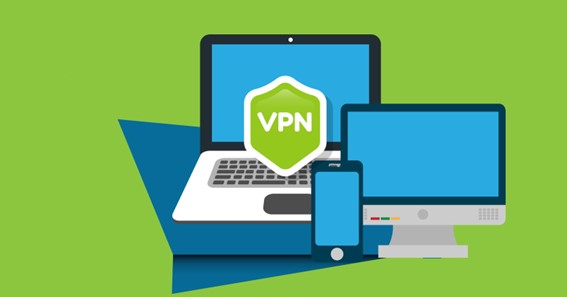In today’s world, there have been significant changes in workplaces. Especially, the last two years’ circumstances forced companies into a digital revolution in their infrastructures. More and more enterprises are adopting the remote working system. And they started to hire employees regardless of their countries or even continents. There are infinite and proven benefits of remote working for enterprises such as flexibility, enhancing performance, and cost-effective solutions.
On the other hand, concern about cybersecurity has been raised as a result of the increasing number of work-from-home employees. Remote working systems gave birth to other practices such as cloud-based data storage and bring your device implementations. All of them made companies more vulnerable to cyberattacks and malicious third-party activities.
To work efficiently and mitigate the risks of remote working such as data breaches and possible liability, taking cybersecurity measures is a must for enterprises. So, companies feel the necessity for an effective cybersecurity tool and this is where remote access VPN shows up.
click here – Benefits of Drupal for the Company
Remote Access VPN
A VPN (Virtual Private Network) masks your IP Address and encrypts your private data from detrimental attacks. The ultimate benefit is that you want to determine the VPN type you should choose. For companies that recruit remote working employees and also want to keep themself safe, remote access VPN is the most appropriate VPN.
Remote Access VPN creates an encrypted tunnel between a distant computer and the company resources. The user can get secure access to the company network as if physically plugged into the office servers. And this tunnel enables users to send and receive data out of harm’s way.
How Does It Work?
The two main components of remote access VPN are VPN client servers and a network access server. To start using a VPN, the network access server requires validation and after authentication, you get access to sources that are allowed. And also you need to install software on your device or a special application to maintain the VPN connection. This software establishes the encrypted tunnel between company resources, employees, and the devices on the network.
click here – Working from Home: How to Save Energy
3 Reasons Why You Should Use a Remote Access VPN
1) Secure Data Transmission
The main advantage of remote access VPN is that it provides a secure data transmission. Data is encrypted if employees send or receive it through a VPN. It is vital to protect your data in case of any cyberattack. Especially, using a public Wi-fi where data traffic is not encrypted can create a major risk of harm.
By using a Remote Access VPN, a company can restrict the database access and determine who has the authorization to access corporate assets. Significant assets such as client’s data, commercial secrets, and confidential pieces of information are protected by remote access VPN. You can read more for other benefits and see how the cons of remote working in a cybersecurity context can be eliminated by using a remote access VPN.
2) Low Price & Convenient Access
Remote Access VPN, with a comparably low price, is appropriate for both small and medium-sized enterprises. They do not need to spend huge amounts to establish a remote access VPN system. Instead of wasting money on traditional cybersecurity measures, companies can invest in other departments.
Troubleshooting errors with remote access VPN is easier than the other traditional methods. Because IT employees can log in to company resources remotely and using their own devices. They improve issues smoothly and without being physically in the office.
3) Connecting to Work Network Remotely
Let’s say there is an organization that has branch offices spread out in different locations. Or there are many remote employees in this enterprise. The secure connection must be their priority. Because the devices that employees use are risky. Personal laptops and mobile phones are more vulnerable to cyberattacks.
Remote access VPN ensures enterprises with data protection. It creates instantaneous access to the resources and enables you to supervise and regulate permissions. When work-from-home employees get and share information via their own devices, remote access VPN works as a shield. It encrypts the vulnerable data that is shared and ensures protection.
For data access and storage, enterprises commonly use cloud-based systems and protect their private data in cloud services. It provides remote workers a wide range of opportunities to access and use these data. And also companies can protect their sensitive data while sharing it with their employees.
Conclusion
Remote working has become frequent and it offers tremendous benefits: Increasing productivity, flexible working hours, pleasant workers, and cost-effective solutions like no office furniture, and no transportation costs.
But remote working comes with a concern. The first question about remote working is data security and how to protect it efficiently. Because of the remote working nature, it requires each employee to use public or third person’s Wi-fi networks. Which makes employees more susceptible to cybercriminals.
Remote Access VPN offers data encryption and a safe transmission experience at an affordable price. An appropriate remote access VPN protects you against vicious data leaks. Your remote workforce can function effectively and you can optimize your profits.









